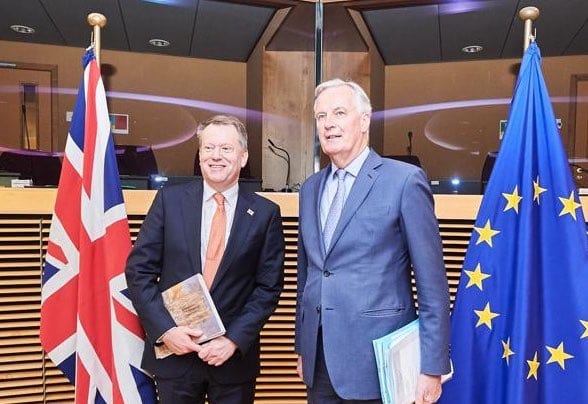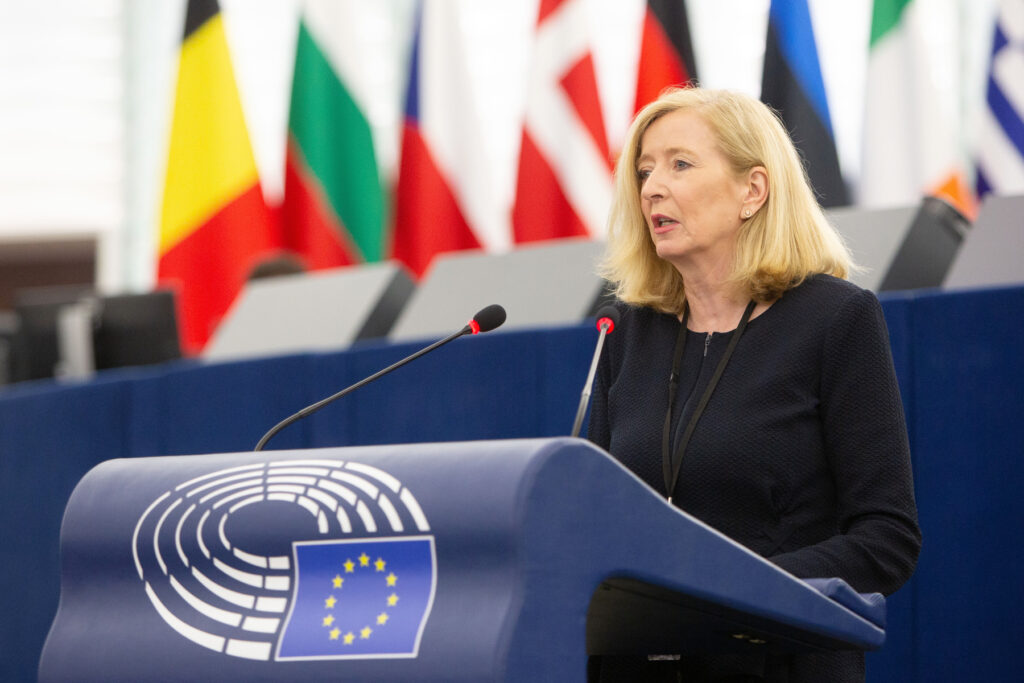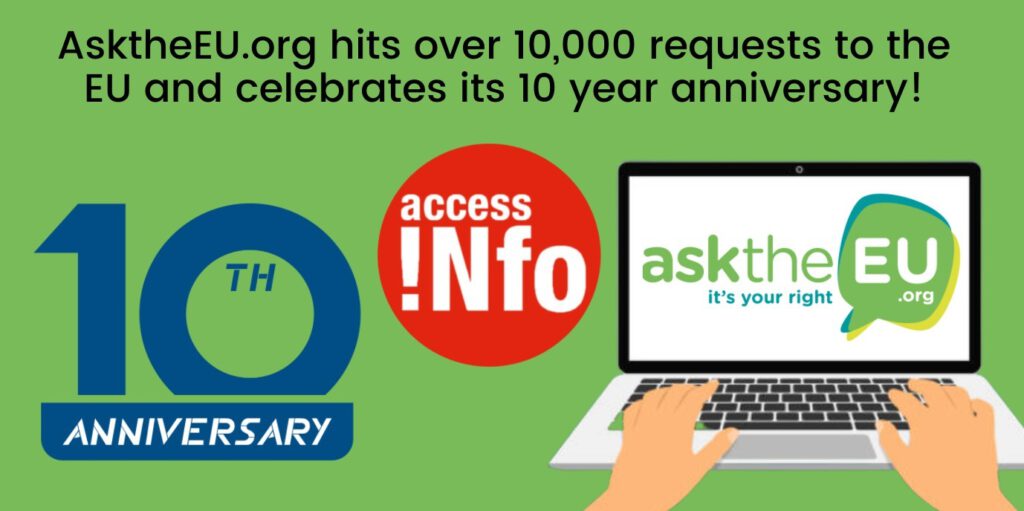In process of obtaining the Council Legal Service’s opinion on the EU-UK Trade and Cooperation Agreement.
While the EU was praised for its transparency in negotiations with the exiting United Kingdom, this openness appears not to extend to its internal legal advice regarding the negotiation process. Vellamo Jutila shares her experience of trying to probe behind the scenes of the negotiation process.
Background of the request
Little did I know about the possible difficulties in accessing the EU institution’s documents. In January 2021, in relation to my master’s thesis I started to familiarise with the EU-UK Trade and Cooperation Agreement (TCA), a partnership agreement between the EU and the UK that was finally reached after a lengthy Brexit-negotiation process. Only few days after Chief Negotiator Barnier had presented the outcome of the negotiations, the Council adopted a decision on the signing, on behalf of the EU, and on provisional application of the entire agreement. The Council explained that given the urgency of the situation with the transition period coming to an end, unnecessary disruptions in the cooperation between the EU and the UK could be limited through the provisional application of the TCA. The no-deal-Brexit was of course in no one’s interest and the agreement reached at the eleventh hour provided the anticipated legal certainty.
Originally, my particular interest was in the unprecedented law enforcement and judicial cooperation included in the association agreement. Without entering into detailed examination of the treaty provisions, suffice it to note here that the judicial cooperation provided by the TCA is largely based on Council of Europe instruments – conventions that are ratified domestically and are commitments of Member States. In terms of competences the Council’s choice to sign and provisionally apply the TCA as an EU-only agreement occurred therefore surprising since the agreement covers areas in which the competences are shared between the EU and its Member States. When the EU and its Member States share competences and the situation of facultative (optional) mixity occurs, the usual choice is to resort to mixed agreement to ensure the involvement of the national parliaments in the ratification process. If the form of the agreement is mixed, this also means that the Member States are parties to the agreement as well.
To access or not to access?
As the agreement was negotiated largely in non-public fashion, the leaked Council Legal Service’s (CLS) opinion provided valuable insight to the deliberations preceding the final decision-making within the Council. I sought public access to the document which the Council denied claiming that full disclosure would undermine the protection of public interest as regards international relations since the requested document would reveal the EU’s strategy vis-à-vis third countries. The Council further relied on the exceptions relating to the alleged sensitive nature of the legal advice in question and ongoing political discussion within the institution to deny access.
Indeed, at the time of my access request (9 February 2021), the decision-making process was still ongoing meaning that the European Parliament had not yet given its consent to the agreement nor had the final decision of conclusion taken within the Council. The (publicly available) agreement was, however, already applied provisionally with the effect that both the EU and the UK were under an obligation to apply the entire agreement. Thus, the TCA only awaited its ratification process to be concluded that is a public process which involves European Parliament. Moreover, the delay in concluding the agreement did not find its cause in internal ‘ongoing discussions’ within the Council but rather in delays for completing the legal-linguistic revision of the TCA in all 24 languages for its scrutiny by the European Parliament.
Dissatisfied with the Council’s reply, I filed my confirmatory application and asked the Council to reconsider its position. In my confirmatory application, I stressed – amongst others – the public interest in the transparency of the decision-making process prior conclusion; the need to sufficiently demonstrate how the disclosure would actually undermine the protected interest in question; that the exceptions provided by the regulation must be both interpreted and applied strictly; and how there still was a genuine interest in obtaining access to an authenticated version that would express the institution’s official position. The entire exchange can be accessed here.
The Council later explained that the CLS opinion was ‘drafted in haste’, and that its disclosure could lead to it display caution as the CLS would be ‘tempted to release only short and cryptic legal advice which would not serve its function and would run against the legitimate ability of the Council, especially where it has to act in emergency, to seek legal advice and receive frank, objective and comprehensive advice’. The Council went on to add that ‘it is not a given that the European Parliament will give its consent as it may question certain parts of provisions of the Agreement’ and hence the outcome of the decision-making process cannot be held for granted.
The Council explained that the opinion of its legal service was ‘drafted in haste’ and that its disclosure could tempt it to ‘release on short cryptic legal advice’.
The arguments put forward by the Council were simply puzzling and appeared to be in stark contrast with the objectives of the transparency regulation. In fact, the regulation stresses the role of openness in guaranteeing the EU administration to enjoy greater legitimacy. The requested CLS’s opinion provides, in the words of the Council, ‘an assessment of whether the [TCA] could, in [the CLS’s] view, be concluded as an EU-only agreement on the basis of Article 217 TFEU’. Thus, the described CLS’s ‘temptation’ to release ‘cryptic legal advice’ should accordingly speak in favor of disclosure. If the CLS indeed is unable to perform its function – that is, in the words of the Council, to give legal advice to the Council in order to ensure that Council acts are lawful and well-drafted – an overriding public interest must be at hand, not least to ensure the accountability of the institutional body that facilitates the work of the Council.
In addition, had the European Parliament in fact contested the agreement for certain parts or conditioned its consent to amendments, or, had the Member States disputed the exercise of the EU competences under the agreement and its conclusion as an EU-only agreement, the Council act could have been ultra vires – which again would advocate public debate in greatest detail should the Council lack a particular mandate.
Interestingly, several member states did not concur with the Council’s reply to my confirmatory application. In their joint statement, the Netherlands, Latvia, Finland, Estonia, Denmark, and Belgium stressed that ‘there would be an overriding public interest in full disclosure of the CLS opinion on the nature of the TCA and the exercise of the EU of its competence. Such openness contributes on providing the legitimacy of the decision making process in the Council with regard to the TCA, while reflecting the unusual circumstances under which it has taken place’. Sweden, on the other hand, believed that ‘there is an overriding public interest in disclosure considering the subject-matter if the document involved and the criticism which the Council has received on this matter in the past’ (emphasis added).
European Ombudsman’s assessment
Following my complaint, the European Ombudsman opened an inquiry into the Council’s file and her inquiry team inspected the non-redacted version of the requested opinion. After the inspection of the document the Ombudsman opined that the requested document does not in any way undermine the public position that the EU took as regards the ratification of the agreement, nor does it reveal information on the EU’s negotiating position or strategy. To the contrary, she opined that ‘disclosure would in fact foster the confidence in legality of trade negotiations rather than undermine it’.
As for the protection of the legal advice, the Ombudsman found the Council’s arguments unsubstantiated. She was of opinion that greater transparency could ‘reinforce the legitimacy of the Agreement, in particular regarding the choice of legal basis’ and proposed the Council to grant the widest possible access to the requested CLS’s opinion. Since the TCA had meanwhile entered into force, the Ombudsman urged the Council to consider this development when reviewing the possibility to grant full or greater access to the opinion.
The Council did not accept the solution proposal to disclose the CLS’s opinion in any greater extent. Irrespective the Ombudsman’s assessment, the Council maintained its position and claimed that the sensitivity of the requested document is not automatically removed simply because the internal procedures in the Council have been concluded in relation to one specific agreement (TCA) when the requested legal advice is relevant in the context of other agreements for which the exception concerning international relations equally applies. Somewhat paradoxically, the Council also decided to deny full access to the Ombudsman’s solution proposal and the Council’s reply thereto. Parts of both documents were identified confidential by the Council and I was provided with the non-confidential parts only. Following the ombudsman’s invitation to comment, I expressed my discontent how in search of additional review on the legitimacy of non-disclosure the person concerned is denied full access to the solution proposal that relates to their complaint.
The Council also denied full access to its reply to the Ombudsman’s solution proposal, parts of which it identified as confidential.
In her recommendation of February 2022, the European Ombudsman indicated her dissatisfaction with the Council’s ‘very brief’ reply and reluctance to address the arguments put forth in the solution proposal. She further recalled that the Council is bound by the recent findings of the General Court in favor of disclosure and found ‘regrettable that the Council for now has chosen to disregard the judgement [Pech v Council] in assessing the potential disclosure of this opinion. In light of the above, the Ombudsman finds that the Council’s refusal to grant the widest possible access to the opinion constituted maladministration’.

See also
Preliminary observations about the process
Firstly, the length of the process taken appears to contravene with the objects of transparency regulation. After 15 months I still have not been provided with the requested document and the process is still ongoing. In my case, the stakes luckily were not high. The requested CLS’s opinion was obviously very relevant in terms of my research question but the thesis’ completion was not per se dependent on the access. In fact, the process itself generated greater material for the purpose of my thesis and provided valuable insight into the transparency practices of the Council.
After 15 months I still have not been provided with the requested document and the process is still ongoing. Yet the process itself provided valuable insight into the transparency practices of the Council.
However, for some other request for documents the situation may be completely different. While the preamble of the regulation stresses how the openness ‘enables citizens to participate more closely in the decision-making process’, the length of the procedure itself may thwart the original aim and purpose of the request and frustrate the objective, for example, to influence the EU institution before the final decision takes place.
Secondly, without exact document number it can require quite an effort to target relevant documentation from the register. For example, I managed to locate the CLS’s opinion only after I learned its number and drafting date. Similarly, after I received the Council’s reply to my confirmatory application, I went on to run additional search in the register to obtain all the possible documentation related to the process within the institution. For the period of 23 February 2021 to 9 April 2021 (the Council had extended the time limit for its reply by 15 working days), the register provides great number of results which I run through before finding the joint statement of the dissenting member states (the Council did not proactively provide me with the aforementioned information).
The descriptions of documents in the register may be scarce as well. Recently, the Council approached me with an inquiry after it had received a request for public access to document 6712/22. The Council asked whether I would agree (I did) with the release of the requested document which, according to the Council, also contained my comments to the European Ombudsman’s proposal and the Council’s reply thereto. Provided with the document number I was curious to learn the purpose it had been drafted for but the search in register did not provide a clear answer (at that time; the document is now publicly available).
Thirdly, the Council’s replies to the requests may appear ‘intimidating’. In its reasoning the Council relied mostly to the EU court’s case-law and the Council’s reply to the confirmatory application embodied (sometimes rightly) maligned ‘EU jargon’. It may seem impossible to challenge the EU institution’s position without legal expertise or in-depth understanding of the relevant case-law. On the other hand, there is help available: requests filed through AsktheEU.org and the correspondence with the EU institution in question are publicly available and can be of useful support.
Lastly, but perhaps most importantly, this exercise obliged to ponder the effectiveness of the means of remedy in cases of non-disclosure. As such, filing a complaint to the European Ombudsman proved effortless and her inquiry team has kept me fully informed of all the stages of the process. As a private citizen, the choice between the General Court and the European Ombudsman was easy and obvious. The former would certainly have required financial commitments and possibly bearing the costs incurred by the institution in the court proceedings. While the EU citizen’s possibility to file a complaint to the European Ombudsman balances the relationship between an individual (or NGO) and the EU administration, the protecting effect of the complaint to the citizen’s right is however hindered if the Ombudsman’s assessments are ignored by the EU institutions. While the successful rate in obtaining requested document may be high in general, the EU administration unfortunately does not always follow the Ombudsman’s proposals in access to document inquiries.
The Council has given its opinion on 19 May 2022. The contents of this decision will be discussed in a follow-up article on this blog.
Vellamo Jutila recently graduated (LLM) from the University of Helsinki. She currently works as an associate lawyer in an attorney office specialised in refugee law.






